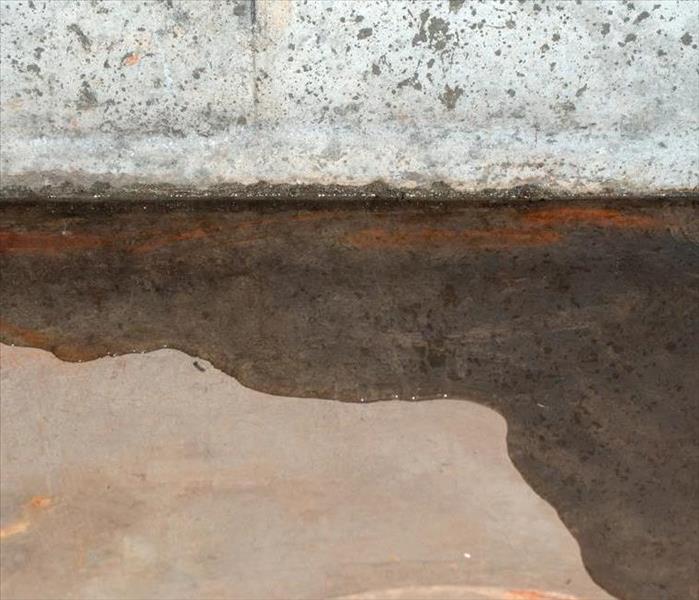5 Common Causes of Basement Floods
4/21/2022 (Permalink)
You may see a basement flood in your home and think it is no big deal. Over time, however, that standing water can cause major damage to your Ogden, UT, house. Mold and mildew could grow near the liquid, as well.
A flooded basement thus needs to be addressed as soon as possible. Your local SERVPRO franchise professionals can help with the restoration process. They are Faster to Any Size Disaster and will know how to salvage any damaged items.
Once the remediation is complete, you should take steps to prevent another flood from occurring. That means finding out exactly what caused the flood. Here are five common sources of basement floods and how to prevent them.
5 Common Causes of Flooded Basements
1. Poor Drainage Installation
When identifying the cause of your basement flood, check the location of the downspouts in your drainage system. They may drain toward your home or be placed within six feet of the basement. In either scenario, water from the downspouts could flow past the weeping tile and into the basement.
Have a plumber move the downspout so it empties into your backyard or street instead.
2. Improper Sealing
If your basement often floods during heavy rainstorms, the floors and walls of the room may not have been sealed properly. The seals need to be strong enough to withstand severe weather. A construction expert can help you strengthen the sealing if necessary.
3. Eavestrough Debris
When debris and leaves clog the eavestroughs, water could overflow from them and leak into the basement. Luckily, this problem is fairly simple to fix. Simply grab a ladder and clean the eavestroughs, or hire a professional to do it for you.
Sometimes, even unclogged eavestroughs overflow because they cannot handle the volume of rain that your area experiences. In this case, you need to replace your eavestroughs with bigger ones.
4. Clogged Manifold
Sometimes, basement floods occur for reasons beyond your control. For instance, your property could overflow with water if there is a clog in the manifold that links your house to the sewer system. Besides harming your basement, this could also damage the foundation of the home.
If you suspect that this issue is causing floods on your property, contact local authorities so they can address the problem.
5. Unsuitable Home Location
A home should be built on top of a sloped area so water can drain away from the property. If your house is experiencing numerous floods, it may be located at the bottom of the terrain. You do not necessary have to move, however. That is because the slope of a land typically becomes more level over time due to erosion.
While not every basement flood is preventable, you can take steps to reduce the chances of one of these disasters occurring. First, you need to understand what led to the flood in the first place. In some cases, you can lower your flood risk by making alternations to your home. Other times, you may need to implement more drastic changes. If you make adjustments and water damage still occurs, SERVPRO professionals can help with the cleanup.




 24/7 Emergency Service
24/7 Emergency Service
